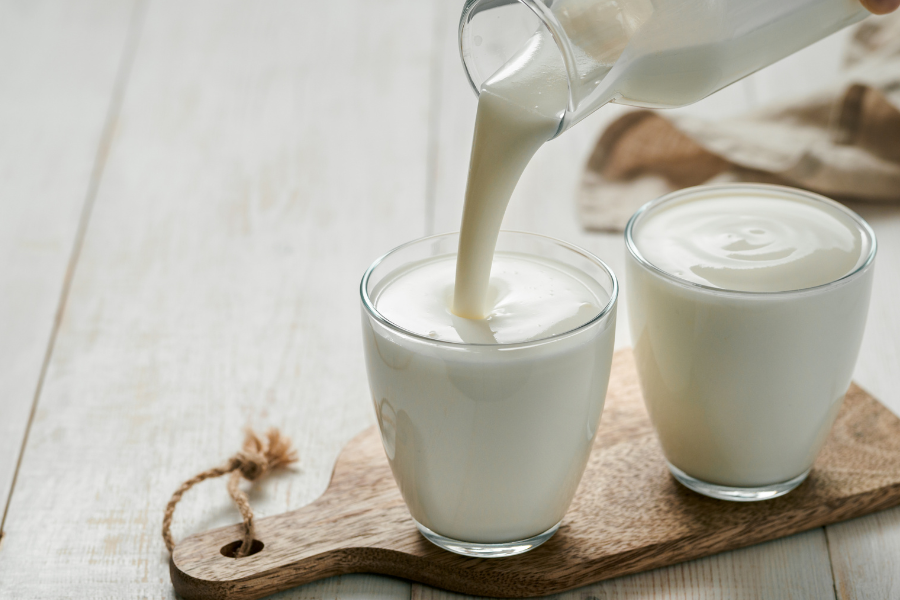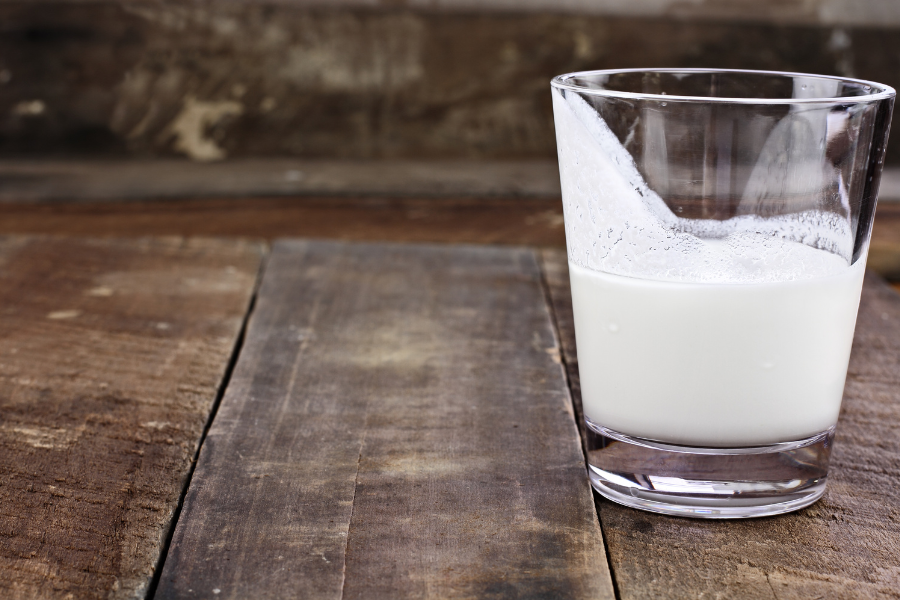Introduction
If you are a fruit lover, you probably get down with papaya from time to time. And if you are a fruit lover and a dog lover, you have probably have asked yourself if you can give your dog papaya from time to time.
Can dogs eat papaya? If so, is it safe? And how much is too much? These are valid question that we will provide valid answers to today! We will explore everything from the nutritional benefits of papaya, to their potential risks for dogs, and even how to to safely incorporate papaya into your dog's diet. Let's doggy leap right into it, shall we?
Papaya in a Nutshell What Is It?
Papaya, when sliced open, has a beautifully-vibrant orange color. But it is not just a pretty face with tropical, Central American heritage. No, it is so much more than that. These days, papaya can be found in every corner of the world, and certainly all across the United States, from New York City to Los Angeles. Its flavor is sweet and succulent, making it appealing to both humans and yep, you guessed it - dogs.
Beyond their deliciousness, they also offer a wealth of health benefits. Packed with vitamins and minerals - i.e. vitamin C, to A, to potassium, to name a few. These good boys boost general wellness and can amp up your dog's immune system. Plus, papayas have got your pup's back—or should we say they have your dog's belly— because they contain digestive enzymes that help soothe belly issues.
Before you get carried away and start shoveling loads of papaya in your dog's bowl, there are several important considerations to, well, consider. The main one being that too much papaya for your dog could send things in the wrong direction with their tummy. More on this later.
Safety Precautions
Can Dogs Eat Papaya Skin?
This is an easy one - the answer is NO. Papaya skin is extremely hard to digest, for humans and for dogs, so always peel a papaya first, and stick to the interior - fruiting body of the papaya for your pooch.
Can Dogs Eat Papaya Seeds?
And how about papaya seeds, you ask? This is also a short answer. NO papaya seeds for your dog! Papaya seeds not only could present as a choking hazard for small dogs, but they also can contain small amounts of cyanide, which is poisonous for dogs. So it is a no-go on the seeds!
Digestive Health Can Papaya Help?
If your dog has a sensitive belly, papaya may just offer some benefits for them. Because papaya is rich in fiber, it can assist in promoting regularity (yes, we are talking about regularity of poops, people). Some dogs, like humans, get constipated and can therefore benefit from some extra fiber-dense fruits.
Papaya is also a digestion soother because it naturally contains digestive enzymes, with the star being an enzyme called papain. Papain helps the body break down and absorb protein. So essentially, these enzymes found in papayas, like papain (papain is just one) can help your dog, and you, absorb the nutrients from the food you're eating. Pretty cool, (or should we say pretty tropical) eh?
Again, as with most fruits - moderation is vital. Too much papaya can actually lead to digestive issues for your dog, and it can also be simply too much sugar for your dog's body to handle. So stick to small amounts for your pooch.
How Much Papaya Can I Give My Dog?
When it comes to introducing papaya into your dog's diet, moderation is the name of the game! Generally, it's safe to offer small amounts of papaya as a treat or supplement. A good rule of thumb is to start with a teaspoon or two for smaller breeds and a tablespoon or two for larger breeds. This way, you can gauge how your dog reacts before increasing the serving size. Remember, papaya is meant to be a treat, not a meal replacement! For routine feeding, keeping papaya to 10% or less of your dog's daily caloric intake is a smart approach. Always keep an eye on your pup for any signs of digestive upset after trying papaya, and enjoy the fun of discovering this tasty fruit together!
Comparing Papaya with Other Fruits
Although there are a number of fruits that one can add to their dog's diet, the balancing of the pros and cons is really what needs to be done in order to determine which fruit would be best. Papaya supports digestion and immune functions in ways no other fruit can, but other fruits add much-needed nutrients.
For example, bananas are high in potassium, so they can be an excellent heart-healthy reward for your dogs. Apples make another great reward because they maintain a very good balance between vitamins C and A, fiber, and are low in calories. Berries like blueberries and strawberries are full of antioxidants that help boost your dog's immune system and his overall health.
What is best for your dog is determined by your dog's needs and preferences. Giving your dog as many types of fruits and vegetables (in moderation) can be a good methods for them to have a healthy, balanced diet.
Papaya Allergies: Are They a Thing?
Papaya is not a worry for most dogs, but some dogs can be allergic to different fruits, including papaya. Be on the lookout for any odd or unusual symptoms that occur after your feed your dog papaya, like excessive itchiness, or digestive issues (i.e. vomiting or diarrhea). If you notice any of these symptoms, do not give your pup any more papaya and call your vet ASAP.
If you are a really good boy or girl, it is a good idea to start by feeding your dog only a little bit of papaya. This will allow you to assess if your dog can tolerate papaya, and minimize and adverse or allergic reactions, if they occur.
Conclusion
To sum things up, papayas can be healthy and tasty additions to your dog's diet, if (and only if) given in moderation. Rich in vitamins, minerals, and enzymes, this tropical fruit has some exclusive benefits - a biggie being it can enhance digestion and immunity. However, papaya should only be introduced gradually, and the seeds and peels should be carefully removed before providing it to your dog. Be mindful of your dog's response, and make any necessary adjustments as you see fit.
It is important to know not only the benefits but also the risks of papaya so that appropriate decisions can be made as to whether to add this fruit into your dog's diet and, if so, how to go about it. Most importantly, refer your veterinarian for all of your serious dog-health concerns or questions.
FAQ
Are Papayas Toxic to Dogs?
Nope! Papayas, when served correctly (without the skin, without the seeds, and in small portions), thankfully, are non-toxic for dogs.
Is Papaya a Laxative for Dogs?
Although papaya is a praised for its digestive benefits, and may help mild constipation, it is not technically a laxative, no.
Is Papaya a Natural Dewormer for Dogs?
Alight pet lovers. We are getting into some real nitty gritty now. So, another cool, and popular question we see a lot is: "Is papaya a natural dewormer for my pup?" Here's the kibble scoop: Papaya does have this enzyme (that we touched on earlier in this blog) called papain, and some people claim it could help break down those pesky parasites. It's not a surefire solution (i.e. there is limited scientific evidence to suggest feeding your dog papaya will prevent or treat worms), but tossing a little bit of papaya into the diet of your dog might just give the digestion a good kick.
References
1) Kong YR, Jong YX, Balakrishnan M, Bok ZK, Weng JKK, Tay KC, Goh BH, Ong YS, Chan KG, Lee LH, Khaw KY. Beneficial Role of Carica papaya Extracts and Phytochemicals on Oxidative Stress and Related Diseases: A Mini Review. Biology (Basel). 2021 Apr 1;10(4):287. doi: 10.3390/biology10040287. PMID: 33916114; PMCID: PMC8066973.



